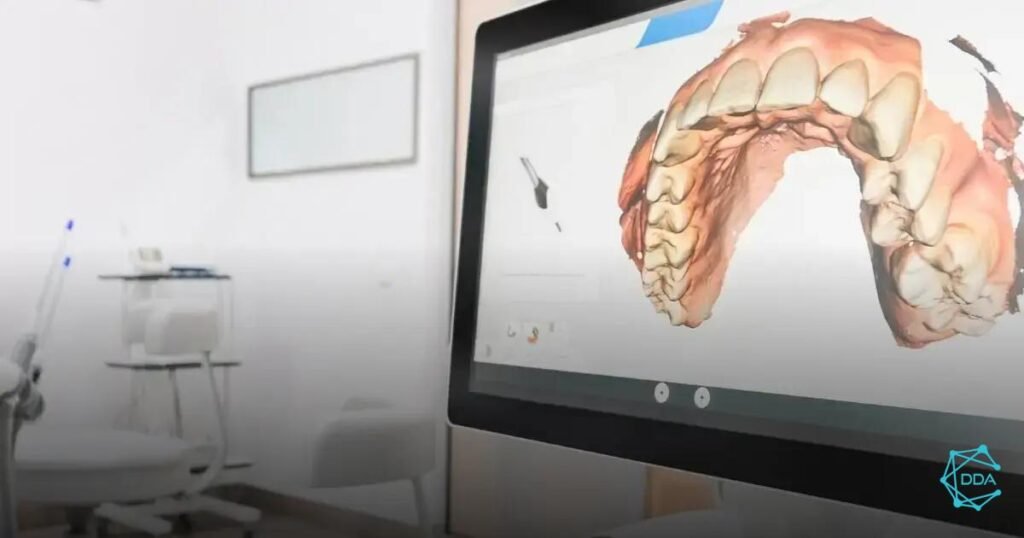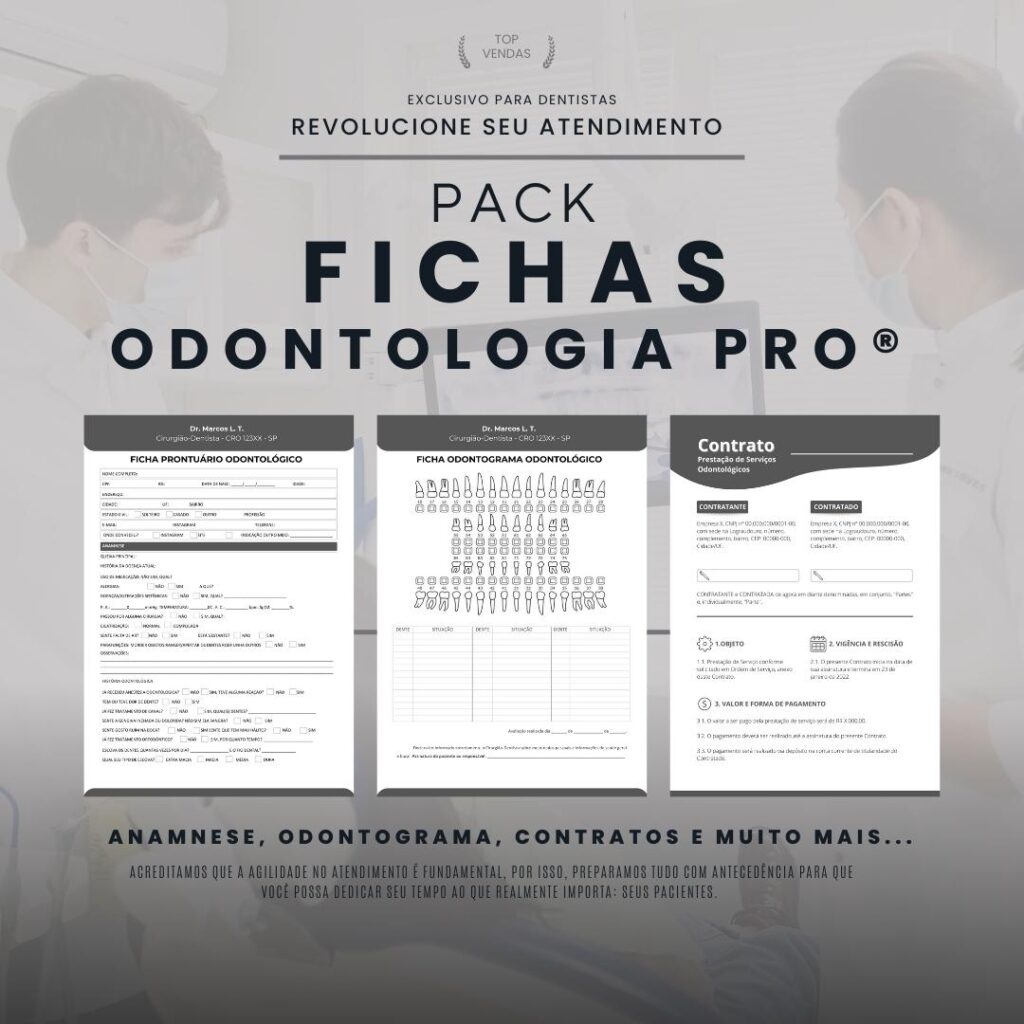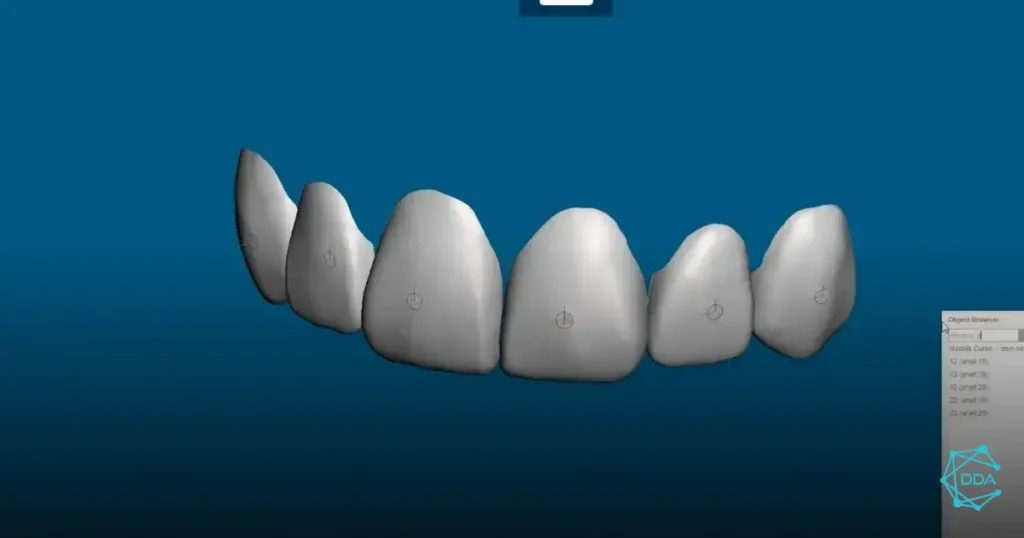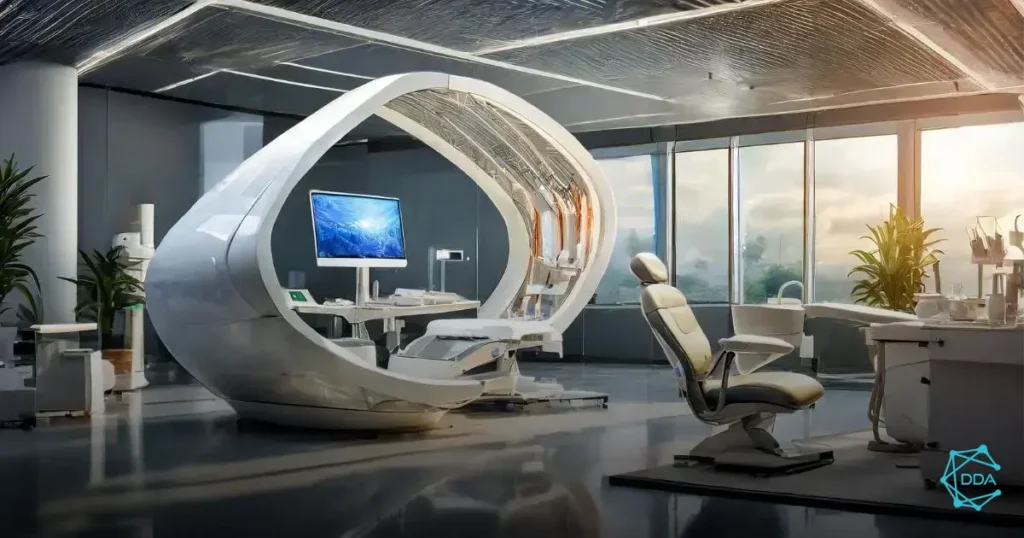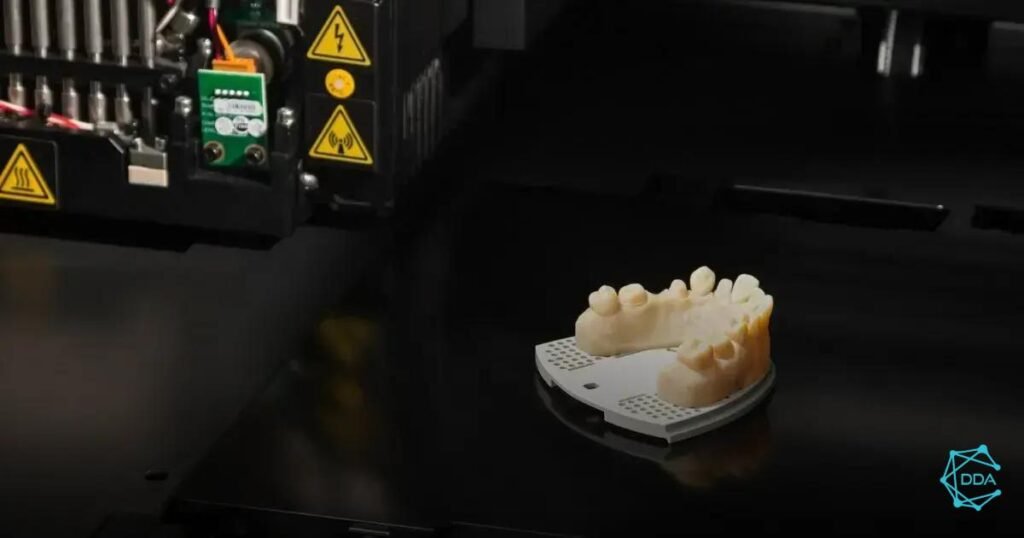O artificial intelligence dentist equipment is revolutionizing dentistry, bringing innovations that improve both diagnosis and treatment. In this article, we will explore the main AI devices available on the market and how they can transform dental practice. You will learn about the benefits these technologies offer, both for professionals and patients.
What is Artificial Intelligence in Dentistry?
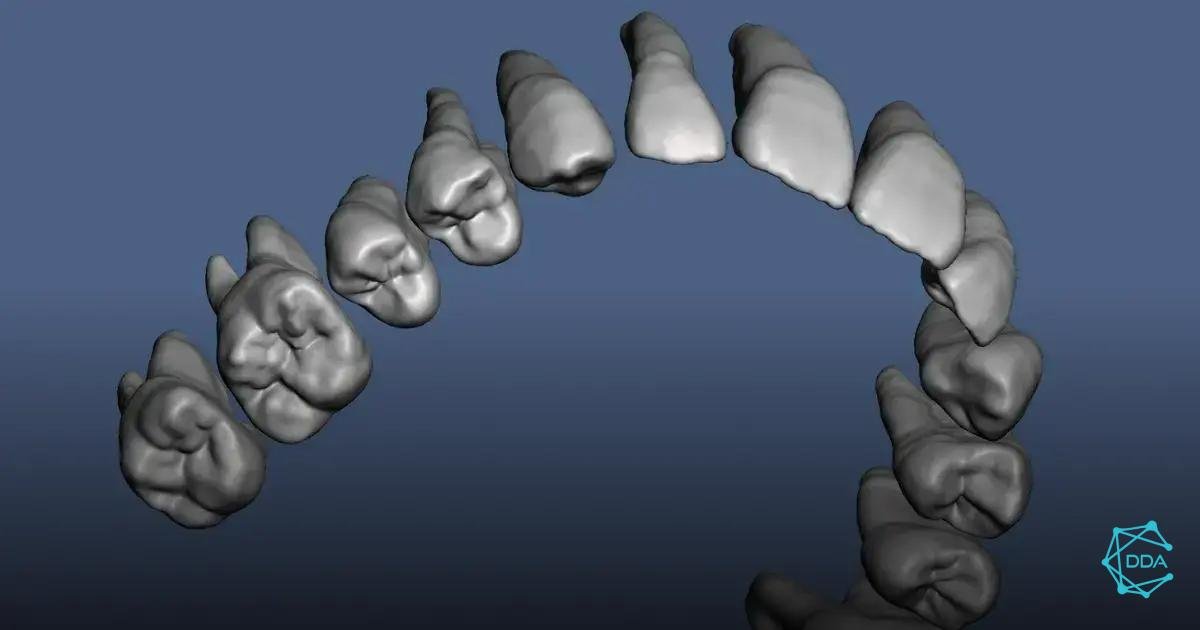

A artificial intelligence in dentistry refers to the use of advanced algorithms and technologies to improve dental practice. This technology allows dentists to automate processes, analyze data, and make more accurate diagnoses.
One of the main goals of AI is to increase efficiency in patient care. With AI systems, dentists can identify dental problems at an early stage by using images and clinical data to perform detailed analyses.
Furthermore, artificial intelligence can help personalize treatments. By analyzing patients’ medical histories and preferences, dentists can offer more appropriate and effective solutions.
Another important aspect is the patient education. AI tools can help dentists provide clear and accessible information, enabling patients to make informed decisions about their treatments.
In short, artificial intelligence in dentistry not only improves the accuracy of diagnoses, but also transforms the patient experience, increasing satisfaction and confidence in the treatments offered.
Top AI Equipment for Dentists
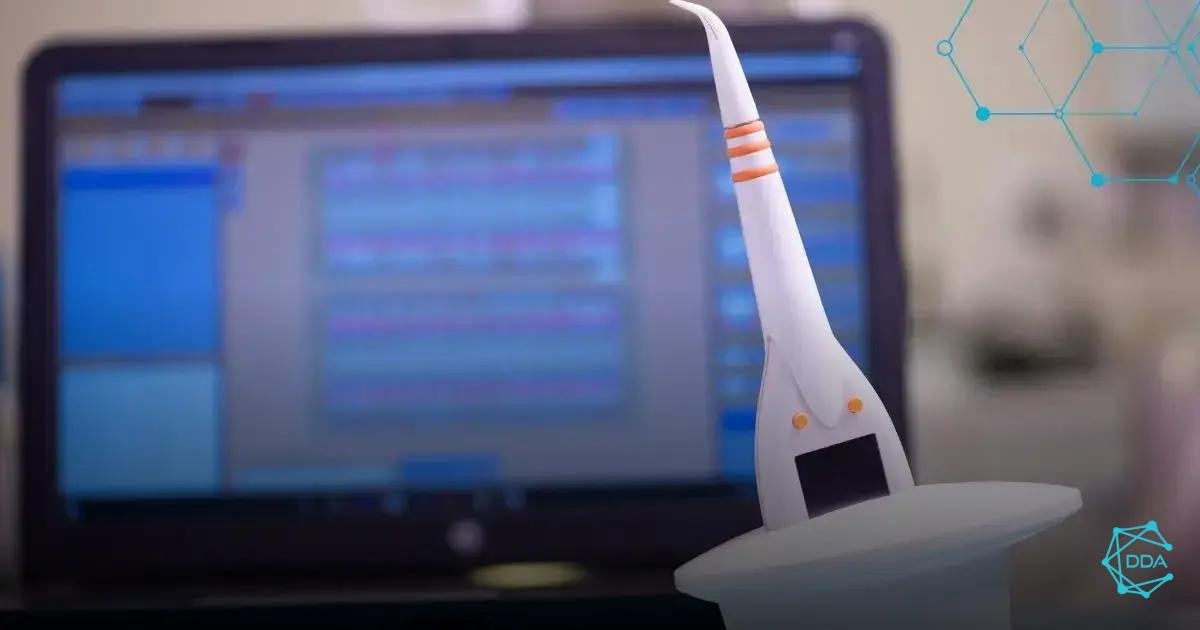

You Top AI Equipment for Dentists are revolutionizing the way dental professionals work. These devices not only increase efficiency, but also improve the accuracy of diagnoses and treatments. Let’s explore some of the most notable ones.
One of the most popular equipment is the intraoral scanner. This device uses 3D imaging technology to capture digital molds of the patient's mouth, eliminating the need for traditional molds. Built-in AI allows the scanner to identify anomalies and suggest diagnoses in real time.
Another innovative equipment is the diagnostic imaging software. These programs use machine learning algorithms to analyze digital X-rays and photographs, helping dentists detect cavities, periodontal disease, and other conditions more accurately.
You customer service chatbots are also becoming common in dental clinics. They can schedule appointments, answer frequently asked questions, and even collect patient information before the visit, streamlining the team’s workflow.
Furthermore, the 3D printing machines are gaining prominence. They allow dentists to create custom dentures, aligners and other devices quickly and accurately, reducing wait times for patients.
Finally, the tools of predictive analysis are becoming an essential part of modern dental practice. They help dentists predict the progression of dental diseases and plan more effective interventions.
These AI devices not only make dentists’ jobs easier, but also provide an improved and more personalized experience for patients.
How AI Improves Dental Diagnosis
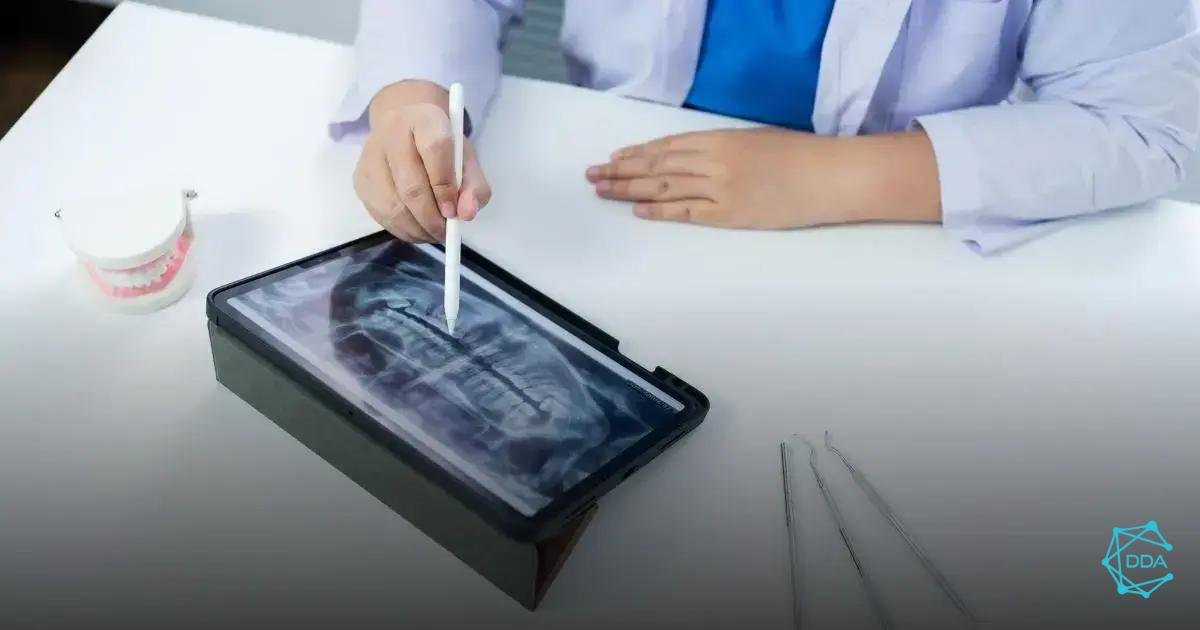

A artificial intelligence has a crucial role in improving the dental diagnosis, offering advanced tools that increase the accuracy and efficiency of treatments. One of the most notable ways is through image analysis.
With the use of machine learning algorithms, AI software can analyze X-rays and intraoral images with an accuracy that often surpasses human capabilities. These systems are trained to identify patterns and anomalies that might go unnoticed by the naked eye, such as early cavities or periodontal disease.
Furthermore, AI enables the early detection of dental problems. By analyzing historical data and clinical information, AI systems can predict the risk of developing oral conditions, allowing interventions before problems become more serious.
A personalization of diagnostics is also a significant benefit. AI systems can consider each patient’s individual characteristics, such as medical history and genetics, to offer more accurate and personalized diagnoses.
Another advantage is the reduction of waiting time for diagnostics. Automation and rapid data analysis provide near-immediate results, improving the patient experience and enabling the dentist to make informed decisions quickly.
Finally, AI also contributes to the patient education. With clearer, more accurate diagnoses, dentists can better explain dental conditions and treatment options, helping patients understand their needs.
In short, artificial intelligence is transforming dental diagnostics, offering accuracy, speed and personalization that benefit both dentists and patients.
Benefits of AI for Patient Experience
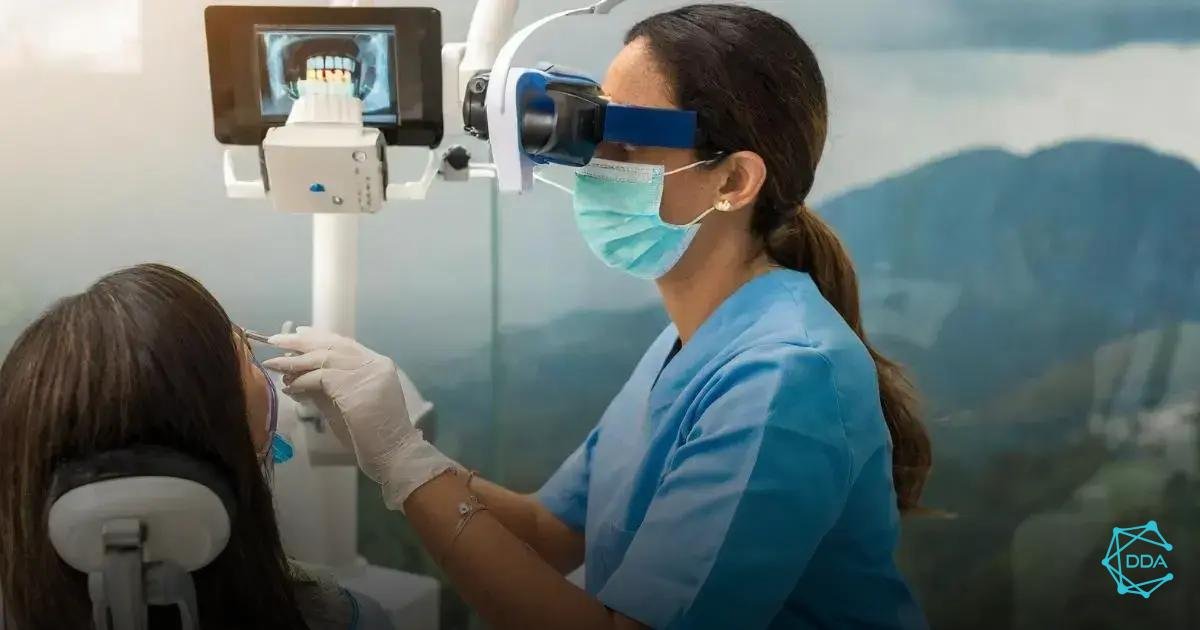

A artificial intelligence brings a series of significant benefits to the patient experience in dentistry, improving not only care but also overall patient satisfaction. One of the main benefits is the agility in service.
With the use of automated tools such as chatbots and scheduling systems, patients can quickly and easily book appointments, 24 hours a day. This reduces wait times and improves convenience, allowing patients to feel more in control of their oral health.
A personalized service is also an important aspect. AI can analyze each patient’s medical history and preferences, allowing dentists to offer treatments tailored to individual needs. This not only improves the effectiveness of treatment but also increases the patient’s trust in the dentist.
Furthermore, the transparency in information is a crucial benefit. AI systems can provide clear, detailed reports on diagnoses and treatment options, helping patients better understand their conditions and healthcare decisions. This fosters more open communication and a stronger dentist-patient relationship.
A anxiety reduction is another positive aspect. By utilizing advanced technologies such as treatment simulations and 3D visualizations, patients can see what to expect during procedures, reducing the uncertainty and fear associated with dental treatments.
Finally, AI also contributes to a more effective monitoring after treatments. Automated systems can send appointment reminders and care instructions, ensuring patients stay on top of their oral health needs.
In short, artificial intelligence is transforming the patient experience in dentistry, making it more efficient, personalized and satisfying.
Future of Dentistry with Artificial Intelligence


O future of dentistry with artificial intelligence promises to be revolutionary, bringing innovations that will transform the way dentists practice and how patients experience oral health care. One of the areas most impacted will be disease prevention.
AI will enable dentists to identify patterns and risk factors in real time, enabling early interventions before serious problems develop. This will not only improve the dental health of the population, but also reduce the costs associated with treating advanced disease.
Furthermore, the process automation will become increasingly common. With the adoption of automated technologies, administrative and scheduling tasks will be simplified, allowing dentists to focus more on patient care and clinical practice.
Another trend is the use of augmented and virtual reality in dental procedures. These technologies will allow dentists to simulate treatments and visualize results in 3D before performing any procedure, increasing accuracy and patient satisfaction.
A teleodontology will also gain ground, allowing dentists to conduct remote consultations through digital platforms. This will facilitate access to dental care, especially for patients in remote areas or with mobility difficulties.
O continuous development of machine learning algorithms will enable AI systems to become increasingly intelligent, learning and adapting to the needs of patients and dental practices. This will result in more accurate diagnoses and more effective treatments.
Finally, the integration of health data with AI platforms will enable a more holistic approach to patient care, considering not only oral health but also how it relates to the individual's overall health.
In short, the future of AI dentistry is promising and full of possibilities, with the promise of more efficient, accessible, and patient-centered care.

